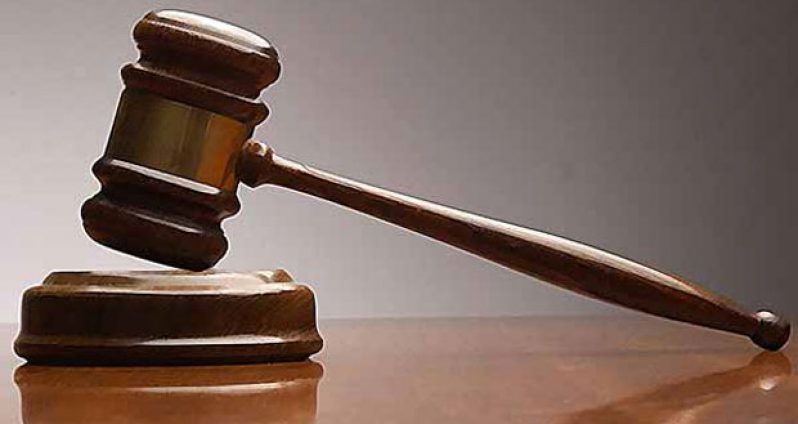YOUTHFUL appellant Kowshal Persaud was convicted by a jury of stripping a 15-year old girl naked on a Essequibo beach and then raping her on Christmas Day 1973. But on appeal, the Guyana Court of Appeal allowed the appeal after finding that the independent evidence before the jury was not so strong, cogent, convincing or overwhelming as to satisfy one that, if an impeccable direction had been given, a reasonable jury would inevitably have reached the same conclusion. The Appellate Court in its judgment, supporting that the appeal be allowed, had referred to 28 cases. The prosecution’s case was that the 15-year-old girl complained that on Christmas Day 1973, she was violently sexually assaulted by the appellant on a beach on the Essequibo Coast, and that in the course of the ensuing struggle she bit his lips and scratched his neck as he stripped her naked and threatened to murder her should she shout. Intercourse was however disturbed by the voices of men approaching and the victim thus managed her escape. She was later assisted by a man who gave her a shirt to cover her nakedness and by a woman who gave her a half-slip to wear. On December 30 the appellant was contacted at home where the police questioned him and took him to a doctor who issued a medical certificate after examining him and showing there were partially healed abrasions to the neck and on both upper and lower lips. The certificate said the abrasions were consistent with finger-nail scratches and human bites. The appellant explained that he and the complainant were friendly before Christmas Day and that she had agreed to have sexual intercourse with him on the beach where they both stripped and were in the act, when voices were heard. He became afraid, picked up his clothing and ran off. At the assizes, the appellant was charged with and convicted of the offence of having carnal knowledge of the girl without her consent, and the jury was directed that in this case corroboration of the complainant’s story did not matter because the appellant had supplied the necessary corroborative evidence by admitting sexual intercourse with the complainant, and that the only question for them to consider was whether there was consent to the intercourse. If however, the girl had originally agreed to intercourse but changed her mind and told him so and he persisted with the act, then that was rape. However, the trial judge did not warn them, as he ought to have done, of the danger of accepting the uncorroborated testimony of the complainant as to consent, but left the matter simply for them to determine whether they believed her that she did not consent or the accused that she did consent. On appeal Chancellor E. V. Luckhoo, President of the Court held: (1) “In the circumstances of this case where the jury was being invited specifically to consider whether the virtual complainant (VC) might have consented originally and then changed her mind, the further question should have been specifically put, viz. whether the accused might not have honestly considered that the original consent still subsisted. An omission to do so would be a very serious misdirection.”
Justices of Appeal Guya Persaud and J. O. F. Haynes held:
(2) “The trial judge fell into very grave error. The question of corroboration still mattered importantly. The jury should have been warned that in the eye of the common law it was considered dangerous to convict on the uncorroborated evidence of a VC that she did not consent, that they ought not to accept and act upon such evidence, but that if after paying full attention to the warning that they were satisfied of the truth of her evidence of the absence of consent, then they may legally convict.”
(3) J. O. F Haynes: “From the directions as worded, the jury was left, or might have been left, with the understanding that, as the appellant had admitted intercourse, there was no danger or risk in convicting on her evidence alone that she did not consent; that they could approach that aspect merely as a question of the VC’s belief of or the accused without observing the necessary rule of prudence or without approaching the evidence with the special caution the common law demanded, and that there was no real need to look for corroboration of the material facts bearing on the absence of consent before accepting the evidence of the V C.”
(4) “The judge did not invite the jury to consider whether the injuries to the appellant‘s lips and neck which, according to the medical report, could have been caused by a woman’s bite or scratch, could indeed have amounted to corroboration when such evidence was so capable. Also to find whether the appellant’s false explanation of his injuries to the police was capable of amounting to corroboration of the complainant’s testimony.
(5) “The appeal must be allowed because the independent evidence to the jury was not so strong or so cogent or so convincing or so overwhelming as to satisfy one that if an impeccable direction had been given, a reasonable jury would inevitably have reached the same conclusion.”
The judgment of the court was that the appeal be allowed and the conviction and sentence set aside.
(By George Barclay)




.png)









